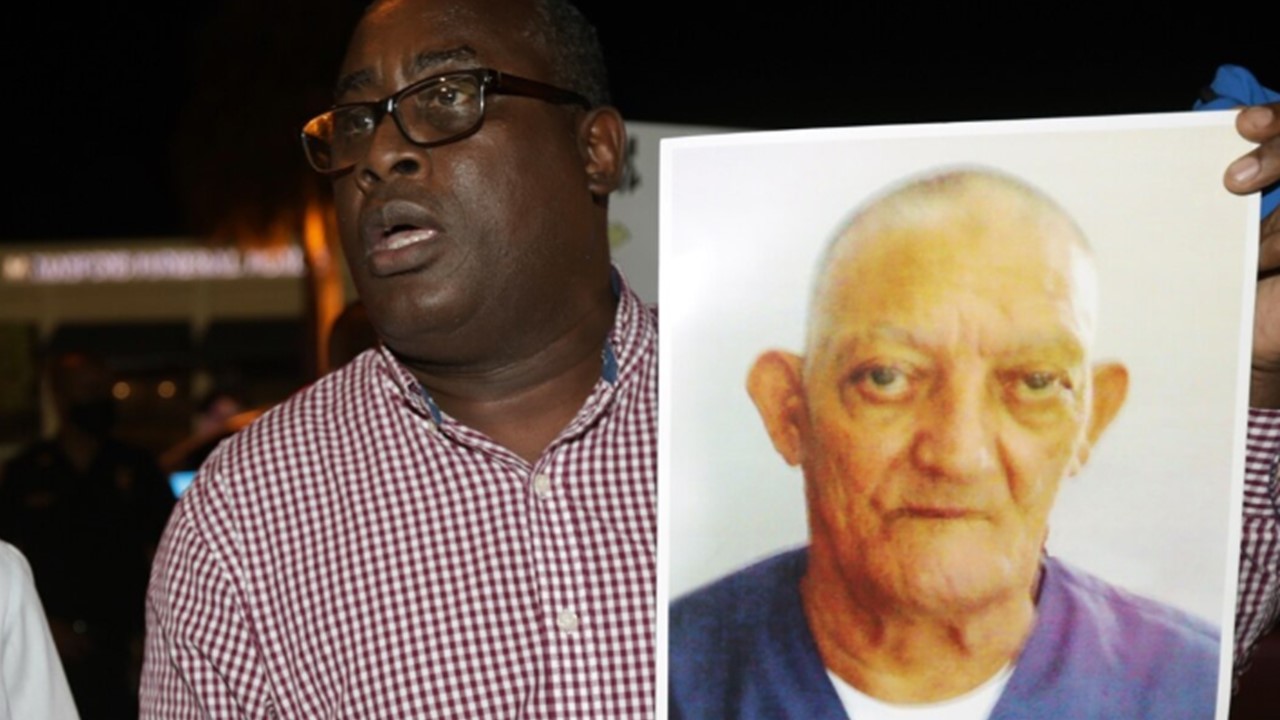A little more than a month after learning that he will have to serve another eight years in prison, 81-year-old political prisoner Miguel Díaz Bauzá , who has been in prison for 30 years, since he joined a force that infiltrated the island in 1994 with the aim of overthrowing the Cuban regime, talked to DIARIO DE CUBA, stating his life in prison "has been a bit hard, but I’ve been able to handle it with the patience that is needed there."
Through his daughter, Karen María León Alfonso, and in the middle of a furlough from the Campamento 2 Penitentiary Center, in Remedios, Villa Clara, where he is currently being held, Díaz Bauzá, who is the oldest political prisoner in Cuba, recorded some WhatsApp audios and explained that he has several diseases, including hypertension, diabetes and kidney problems, and that the conditions at the prison prevent him from receiving adequate treatment, something that has been condemned by dozens of prisoners. "I have vitiligo, which I got late in life; I don't know if it was due to stress," he adde.
"My health is more or less stable, and God has given me the capacity to withstand everything I've faced in prison," he said. "I've never eaten anything from the prison, and I'm never going to, because that would mean damaging my health," he stated.
As for his life in prison, that which he describes as "a bite hard," he says: "In 1999, I had a very big problem, at the Camagüey special, as they call the prison there. He got into trouble for defending the rights of prisoners and speaking out about the beatings that they suffer, which are hidden from the world.
"Then, in 2000, a trial was held and I was sentenced to 20 years, without being allowed to explain why I did that. But hey, I did a good turn for the prisoners in Camagüey. Since then my life has been a bit hard, because I went nine years without any visitors," he says.
In 2022 he was switched to a less severe regime, and since then every two months he has been receiving furloughs during which he visits his daughter and spends time with his two granddaughters and three great-grandchildren.
Díaz Bauzá said that "my daughter has always been there, and she gives me a lot of love," concluding that: "I accept those eight years that I have left, but my desire is to be with my family, my grandchildren, my great-grandchildren, who I love so much. I ask God to continue giving me the patience that I've had thus far. I don't know what's going to happen next, but I'm going to try to have that same patience, to see how far I can make it."
In 2020, the Cuban Democratic Directorate honored Miguel Díaz Bauzá with the Pedro Luis Boitel Freedom Award, which it issues each year, in recognition of his tenacity in the struggle to achieve democratic change in Cuba.
